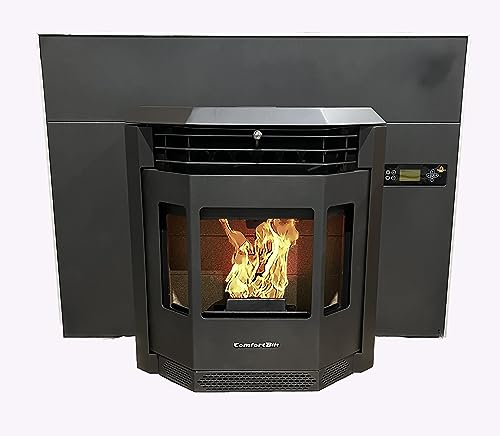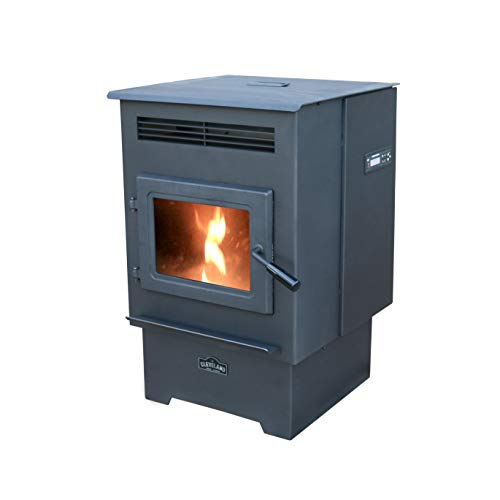You'll Never Be Able To Figure Out This Pellet Stove Furnace's Tricks
페이지 정보
작성자 Claude 작성일24-11-08 21:16 조회14회 댓글0건관련링크
본문
 pellet stove Furnace (canvas.Instructure.Com)
pellet stove Furnace (canvas.Instructure.Com)Pellet stoves can be purchased as freestanding units or fireplace inserts that give your home the appearance of a traditional fireplace with wood burning. These stoves are available in freestanding models or as fireplace inserts. They can provide the appearance of an old-fashioned wood-burning fireplace.
The auger carries pellets from the hopper into the combustion chamber, where they are burned to create heat. Sensors are able to monitor the flame and adjust the rate of operation to maintain a desired temperature of the room.
1. Energy Efficiency
Pellet stoves are a non-toxic, renewable fuel made of compressed sawdust and other materials. These are usually removed from landfills, but can be used to create a clean, efficient source of heat. This means that they help homeowners lower their energy consumption and reduce greenhouse gas emissions. Many users of pellet stoves say that they recoup their initial investment in only a few short years by reducing their heating costs.
Pellets are extremely compressed and are more dense than natural wood, making them more efficient to burn. They also produce less creosote than traditional wood-burning fireplaces. They are also packaged in plastic bags that block out moisture and require less frequent cleaning.
Similar to other heating systems, pellet stoves should be properly size and vented. A qualified technician can assess your venting requirements and space to ensure the best results.
When the installation is completed, a hearth is built in accordance with your specifications. Then, the vent is inserted through a hole that is cut in the siding of your home. The vent may be installed through a sidewall or a roof depending on your preference and the local laws.
After the hearth and vent are completed, the pellet stove fireplace stove may be connected. Some manufacturers offer a remote control that makes starting and maintaining the fire easy while others come with additional sensors that monitor airflow, combustion and flue temperatures, as well as pressure. If the system determines that it needs more or less pellets, it tells the auger to speed up or slow down in line with the need.
All stoves have a storage hopper that holds between 35 and 130 pounds of pellets until they're required. The size of the hopper determines how often you'll need to replenish your stove. Larger hoppers permit longer periods before a refill is needed. A grille draws fresh air out of the room and passes it over a heat exchanger, which then is able to blow heated air into the living space by convection. A grate, auger or other device distributes the pellets, and a pan below will collect any pellets that are not burned as well as combustion residue.
Although pellet stoves are more efficient than wood-burning models, they're not as efficient as natural gas furnaces or electric heaters. The electric components that drive their motorized components require an electrical supply which could cause a problem during a power outage, even though backup systems are readily available for batteries and generators.
2. Low Maintenance
pellet stoves small stoves are incredibly efficient, but just like any other major heating appliance, they require some maintenance to keep them running correctly. Cleaning your stove and exhaust vent on a regular basis will stop the accumulation of harmful creosote, which could cause a fire or explosion that can damage your stove or even your home.
A pellet stove makes use of compressed natural particles (such as kernels, nutshells of corn or Small pellet stoves pieces of scrapwood) made from wood or other substances. An electric auger will feed the pellets from a fuel container into the burner and into the combustion chamber. The speed at which pellets are fed to the burner is controlled by the thermostat you set. This lets the fire remain roaring or modulate lower or even shut down in accordance with the temperature you set. When the fire is gone, the ash is dropped into an empty ash tray underneath the burner, which can be easily removed and disposed.
Pellets are made from the byproducts from lumber processing that would otherwise be thrown away. They are a renewable resource and emit significantly less particles into the air than traditional wood-burning stoves resulting in a very clean burning heat source. The amount of carbon monoxide, carcinogens, and other harmful chemicals produced by pellet stoves is much lower than those with modern wood stoves that have been certified by the EPA.
They are not required to be vented via a chimney, like is the case with traditional wood stoves. Instead, they should be vented through a wall or any other exterior structure. Pellet stoves come with flue ports at the front or back of the appliance. They are connected to a ventpipe that extends out the house.
A pellet stove has one drawback: you have to purchase or store enough fuel pellets for the entire winter time. Pellet stove owners typically consume three tons of wood pellets per winter, at a cost of $200 per ton. The costs can add up however they are much cheaper than purchasing firewood and then hauling it away for the wood-burning fireplace or stove. Be sure to purchase enough pellets so that your stove will work throughout the coldest winter months and that you have the right space to store the pellets (preferably dry, cool and off the ground).
3. Reduce Carbon Footprint
Pellet stoves generate heat from renewable biomass fuels, reducing reliance on finite fossils fuels. This reduces carbon footprints and diversifies energy sources for homes.
The emissions of pellet stoves are significantly less than woodstoves, even newer EPA-certified ones. The emissions from pellet stoves modern stoves are also lower than those from gas furnaces. Pellets are made of compressed sawdust, bark, and other wood pellet stove wastes. They can also be composed of various other materials like soybeans, corn as well as nutshells, cherries pits and agricultural waste. When burned, they emit less particulates (leading to respiratory issues and allergies) as well as carcinogens and carbon monoxide as well as nitrous oxides.
The feed system is the major difference between pellet stoves and wood stove. Pellet stoves come with hoppers that hold the pellets. When the thermostat or sensors suggest that the room is in need of heating, the auger turns. The pellets are fed into the combustion chamber and are burned to generate heat. The air from combustion chamber is passed through a heat-exchanger that transfers heat to the blower. This results in extremely low emissions and no creosote accumulation.
After the hopper has been empty, a cyclone action removes the ash and places it in an ash pan. The stove also features fans to circulate the fresh, heated air into the living room. The majority of pellet stoves require little maintenance and feature a large viewing area for you and your family members to relax and enjoy the flames.
The main factor that influences emissions from pellet stoves is the quality of the pellets. Poor-quality pellets produce more emissions. When selecting your pellets ensure they meet certain standards and don't contain other ingredients, such as urea or petroleum-based products. Look for a company that has a guarantee and will replace or repair parts in the event of a malfunction. Certain states provide homeowners with a tax credit in the event that they decide to go greener. This is a great opportunity to reduce the initial cost of this type of stove and make it easier to install.
4. Reduced Noise
Pellet stoves emit very little smoke and exhaust when compared to wood burning fireplaces. A fan is employed to spread heat more evenly throughout the room. This is the reason why pellet stoves require less maintenance than wood stoves. While wood stoves must be regularly cleaned of chemicals and particulates, pellet stoves only need the use of a special metal vacuum cleaner for regular cleaning.
Many manufacturers have designed their stoves so that they are easy to set up and operate as well as maintain. The stoves come in various styles that are designed to match the design of your home. Some come with programmable thermostats and remote control as well as a WIFI apps that let you control and monitor your stove from anywhere in the world.
The majority of pellet stoves have an enormous fuel hopper which can hold between 35 and 130 pounds of pellets. The pellets are then pumped to the combustion chamber by an auger. The amount of heat produced and how hot the fire gets depends on the speed at which pellets are fed to the burner. The hopper can be filled with hardwood pellets (from dense wood species such as oak and hickory) or softwood pellets (from pine and fir). Many stoves can even use alternative biomass pellets, such as those made of corn or switchgrass, which can be an environmentally friendly option.
Pellet stoves emit less smoke and require less maintenance because they burn a more clean fuel than fireplaces that burn wood. They also do not require a chimney, which makes them a better choice for new construction or retrofits.
 In contrast to wood stoves, which need to be kept regularly cleaned of creosote and other chemicals, pellet stoves need to be periodically inspected for proper operation and maintenance. This could include periodic cleaning and inspection of the ash or "clinker" as well as the motors and fans according to the model. The dealer of your appliance can explain the proper procedures for your specific model and brand. He can also help you determine the right fuel for your stove, and give information on storage and safety.
In contrast to wood stoves, which need to be kept regularly cleaned of creosote and other chemicals, pellet stoves need to be periodically inspected for proper operation and maintenance. This could include periodic cleaning and inspection of the ash or "clinker" as well as the motors and fans according to the model. The dealer of your appliance can explain the proper procedures for your specific model and brand. He can also help you determine the right fuel for your stove, and give information on storage and safety.댓글목록
등록된 댓글이 없습니다.


